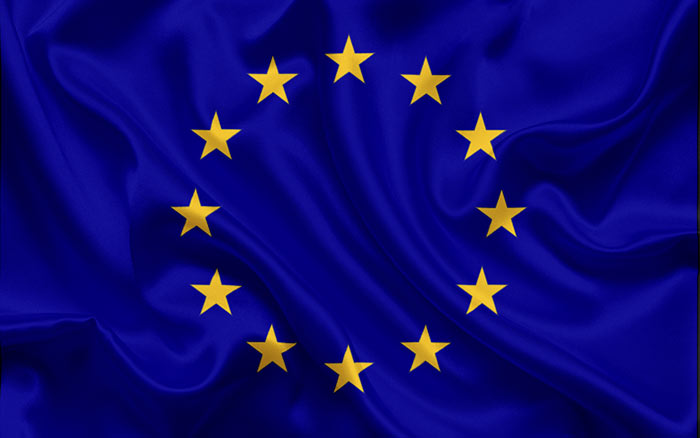Sri Lanka made progress in human rights, EU GSP+ assessment report says

A European Union (EU) report, compiled by the High Representative of the Union for Foreign Affairs and Security Policy, has stated that Sri Lanka has shown significant progress on the human rights front.
However, some concerns still remain relating to statements on the abolishment of the 19th Amendment, as well as statements by the government on non-implementation of the controversial Human Rights Council Resolution 30/1, the report said further.
This report is on the EU Special Incentive Arrangement for Sustainable Development and Good Governance (GSP+) assessment of Sri Lanka covering the period 2018-2019.
“It is of particular importance to consolidate and preserve these achievements, notably in the new political context,” the EU said adding that it will continue to monitor the evolution of the situation.
In its conclusions, the report stated that after 2015, Sri Lanka has restored the independence of key oversight institutions. There has been a significant opening of democratic and civil society space. A process of constitutional reform, including a Bill of Rights, began but stalled. Action is underway towards transitional justice and remedy for families of victims for enforced disappearances. A national human rights action plan has been prepared; women will have a larger stake in local governments; a National Plan of Action for Children has been adopted and reform of the juvenile justice system is being prepared.
The EU pointed out that the Government has engaged with the UN system. “With the co-sponsorship of UNHRC Resolution 30/1, Sri Lanka made far-reaching commitments on promoting reconciliation, accountability and human rights. Nevertheless, according to UN reports, relevant reforms have stalled or slowed down considerably. Measures taken so far to fulfil Sri Lanka’s transitional justice commitments have brought insufficient progress, including on bringing perpetrators of war crimes to justice and resolving longstanding emblematic cases. It will be important that the new presidential administration remains fully committed to the full implementation of UNHRC Resolution 30/1 on promoting reconciliation, accountability, and human rights in Sri Lanka.”
The report goes on to say that the Government still has to deliver on a number of important reforms that are of direct relevance for the effective implementation of the human rights conventions listed in the GSP+ Regulation. “The Prevention of Terrorism Act (PTA) remains in place. Legislation to replace the PTA that aims to be in line with international human rights law, including ICCPR and CAT, has been discussed at Parliament, but stands little chance to go forward. The Government should ensure that torture allegedly committed by the police and security forces comes to an end, that perpetrators are brought to justice, and should implement its policy of zero-tolerance to the use of torture. This is essential in addressing reports of prevalent impunity in most cases of torture.”
Noticing the operationalisation of the Office on Missing Persons (OMP), the EU says that it should deliver truth and accountability to the families of those that disappeared during and at the end of the armed conflict. “The OMP needs to be equipped with the necessary resources and capabilities to fully carry out its functions and mandate. Transposing the Convention on Enforced Disappearances into national law will contribute to this process. Whilst significant progress has been made in the return of land in the former conflict areas, the Government should finalise this process. In 2019, the legislative base for the Reparations Commission has been enacted and Commissioners appointed.”
The report also notes that the government should, in line with recommendations from the UN Treaty Bodies, actively take forward the Children (Judicial Protection) Bill, provisions on the minimum age of marriage, the amendments to the Land Development Ordinance, and other laws that discriminate against women. The Government should take steps to amend laws that discriminate against Sri Lankans from the LGBTQI community, it read further.
The EU remarked that Sri Lanka has shown good level of engagement and commitment to address some of the key issues related to the implementation of the fundamental International Labour Organization (ILO) Conventions.
Sri Lanka has remained committed to its international environmental obligations, while continuing to face challenges with implementation, the report stated. “Authorities have continued to face problems with reporting under environmental conventions. However, the authorities have engaged with the Convention on International Trade in Endangered Species of Wild Fauna and Flora (CITES) secretariat around aligning national legislation with CITES requirements.”
In a positive effort to follow a coordinated anti-corruption policy, the Government put in place an Anti-corruption Strategy 2019-2023, says the EU. “Sri Lanka is also currently implementing 15 commitments from the Open Government Partnership’s 2019-2021 National Action Plan, including an asset declaration system and the appointment of integrity officers.”
The EU notes that the authorities have also continued their significant efforts to aid illegal drug seizures and implement demand reduction programmes, thus attempting to address the increased illegal drug traffic flows through the country. However, intentions to implement the death penalty for drug trafficking are a worrying development and are not supported by the United Nations Office on Drugs and Crime (UNODC) and almost universally deemed not to be a solution to drug trafficking issues, the report emphasized.
(Source: Ada Derana)
Latest Headlines in Sri Lanka
- Nearly 9,000 fined for not wearing seat belts on Sri Lanka expressways February 21, 2026
- Gunman in Akuregoda double murder arrested February 21, 2026
- Sri Lanka President meets Modi, world leaders at AI Summit and concludes visit February 21, 2026
- Sri Lanka joins Russia in Defender of the Fatherland Day event February 21, 2026
- Trump brings in new 10% tariff as Supreme Court rejects his global import taxes February 21, 2026


